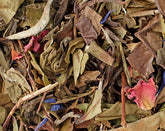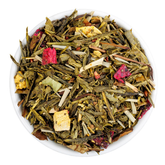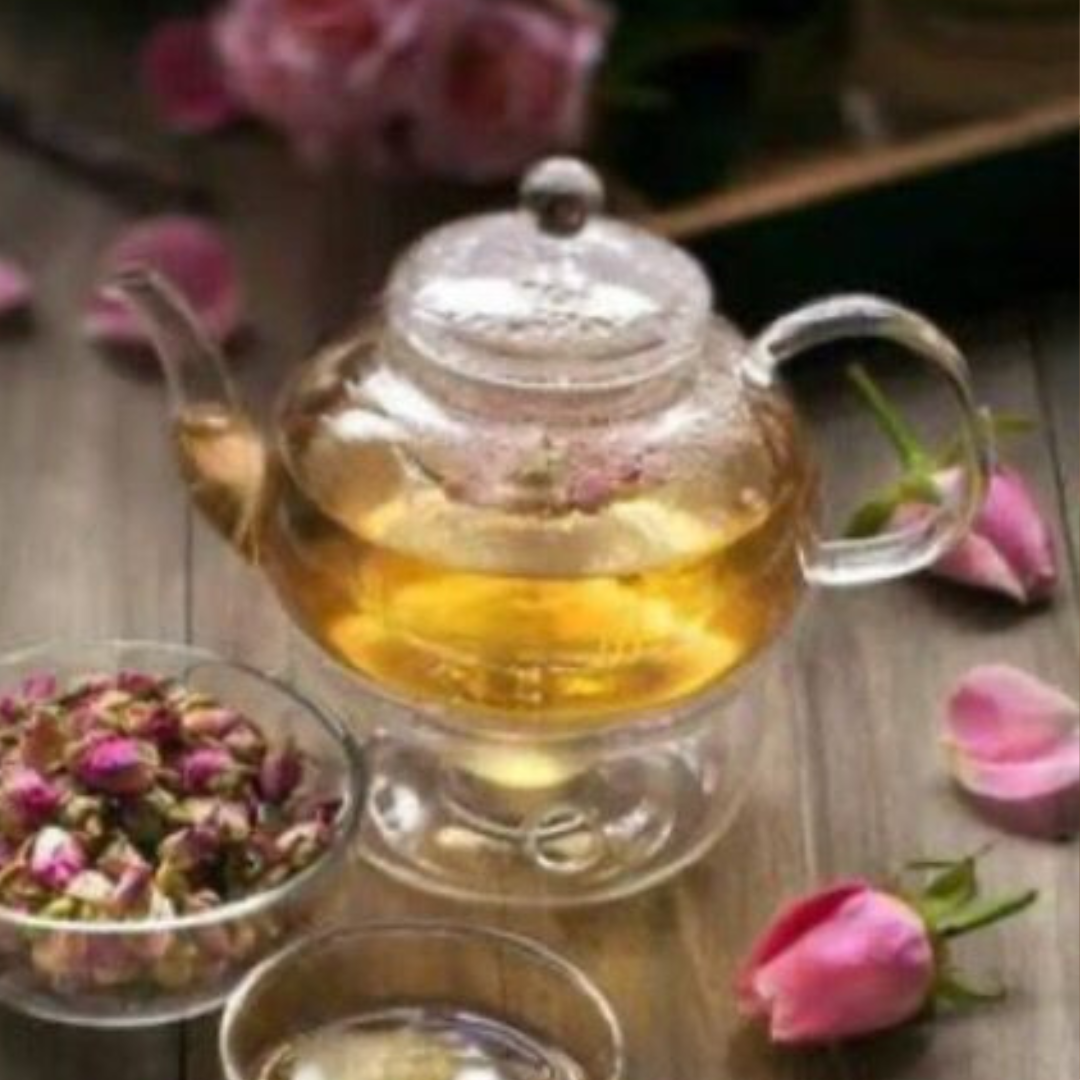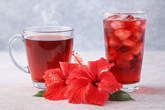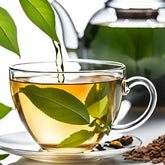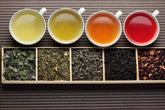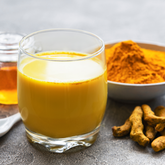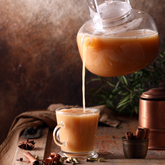If you're suffering from stress and anxiety, achieving calm and contentment can feel like a futile task. While everyone responds to stress and anxiety differently, stress can have a significant negative impact on both physical and mental health. Treatments for stress and anxiety can include therapy, medication, and more. But there are also a few simple herbal ingredients, commonly found in teas, which can have a surprisingly potent effect on those suffering from stress and anxiety. Depending on the severity of your symptoms, a calming cup of tea could go a long way toward promoting health and wellbeing!
Anxiety And The Body
Anxiety and stress can have both mental and physical effects upon the body. Mental symptoms can include excessive worrying, feeling restless and on edge, and a persistent feeling of guilt. Physical symptoms can range from jitters and muscle tension to changes in sleep patterns, loss or increase in appetite, and even physical pain in the form of cramps, aches, and soreness. These symptoms can have a profound negative impact on everyday life.
Treating Anxiety
While the best treatment options vary depending on the individual, simple, everyday treatments and strategies have the potential to significantly improve mental health. Taking care of both your body and mind can be a challenging task, but those with mild to moderate mental health issues can often see rapid improvements after developing healthy habits and implementing positive lifestyle changes.
While we often refer to a broad spectrum of warm drinks as "tea," true tea comes from the camellia sinensis plant, a species of camellia that has been grown and harvested to produce tea for hundreds of years. First grown in rocky, mountainous regions of China and India, tea is now grown in countries throughout Asia and across the globe.
When most people think of the active ingredients in tea made from the camellia sinensis plant, they think of caffeine. But the tea plant also contains l-theanine, a chemical compound that is known for fighting symptoms of anxiety and promoting stress relief. L-theanine helps to stimulate alpha waves in the brain, promoting a sense of calm and relaxation even during stressful situations.
Teas, including black, green, oolong, white, purple, and pu-erh, can all help fight symptoms of anxiety and stress. Since tea also contains caffeine, the combination of the caffeine and l-theanine is said to produce clarity and focus that helps soothe the mind and increase mental performance. In this way, l-theanine helps to combat both physical and mental symptoms of anxiety.
Matcha, a type of powdered green tea traditionally drunk in Japan, is especially high in l-theanine. Long associated with the meditative rituals of the Japanese tea ceremony and Buddhist monastic life, matcha is sometimes said to produce a kind of "body high" that clears the mind while relaxing the body. Matcha has recently experienced a surge in popularity outside of Japan, leading to the incorporation of matcha in many kinds of food and drink. While matcha can be drunk on its own when whisked with hot water, it can also be added to smoothies, lattes, and baked goods for an extra, healthy boost!
No matter what kind of teas you enjoy drinking, all tea made from the camellia sinensis plant can have a positive effect on your mental health, helping to curb stress and anxiety and promote relaxation and wellbeing. Tea is also packed with beneficial properties like cancer-fighting antioxidants, making it a healthy choice all around!
Herbal Teas And Anxiety
While teas made from the camellia sinensis plant can have potent anxiety-reducing properties, herbal teas and infusions also have a diverse array of positive benefits when it comes to stress and anxiety. Herbal teas also often contain more than one of the beneficial ingredients listed below, compounding their effect. While research into the effectiveness of various herbs and spices in treating anxiety is still ongoing, preliminary studies show that consuming herbal tea with these ingredients can have a positive effect!
Rose
Rose petals can be added to many kinds of tea and impart a floral, slightly sweet flavor to whatever tea they mix with. Rose teas can range from subtle black blends to fruity, floral concoctions and everywhere in between. Rose has been used as a pleasant perfume and food additive for centuries, but recent studies show that it can also have a beneficial effect on mental health. Rose helps to reduce stress and anxiety and promote calm and relaxation. While roses grown specifically for consumption often have a more concentrated flavor and beneficial properties, even common garden roses may have similar effects when dried and infused in water.
Lavender
Like rose, lavender is another common floral addition to teas and tisanes. Lavender has been shown to have a positive effect on anxiety disorders by promoting healthy sleep patterns and relaxation without a significant sedative effect. Since those experiencing stress and anxiety often suffer from disturbed sleep patterns and lack of sleep, lavender helps directly ease symptoms associated with these issues. In addition, lavender helps promote general physical and mental wellbeing and has a pleasant, soothing floral flavor. Lavender can be found in a wide range of different teas, from floral black teas to specially concocted "sleepy time" blends.
Chamomile
Chamomile is yet another ingredient common to many herbal teas that has a potent relaxing effect. Chamomile has been used in herbal medicine for centuries to treat everything from sore throats to mental health issues. Recent studies have indicated that chamomile can help reduce pain, promote sleep, and decrease the physical and mental symptoms of generalized anxiety disorder. Whether you have a soothing cup before bed or start your day with a pot of tea, chamomile is a great choice for stress relief!
Mint
Mint is another common herbal tea that can be used to promote physical relaxation and wellbeing. Mint can help promote digestive health, soothe pain, and aid in stress-relief efforts. Mint is found in a variety of tea blends and can also be consumed on its own for a cooling, refreshing cup. If you prefer iced tea, most mint teas are also excellent served cold. If you're looking for a soothing and invigorating cup that will help reduce stress and promote wellbeing, mint is another great option.
Tea And Stress Relief
Whether it's true tea made from the leaves of the camellia sinensis plant or an herbal infusion, tea has a wealth of benefits that can help fight the symptoms of anxiety and stress and promote peace of mind and relaxation. While the compounds contained in tea and herbs have been shown to have a positive effect in treating mental health issues, the ritual surrounding tea can be just as significant in terms of improving symptoms of stress and anxiety.
The Ritual Of A Cup Of Tea
In traditional tea ceremonies in Japan, China, and elsewhere in Asia, tea preparation and service has been perfected into an art. Traditional Japanese matcha ceremonies have developed into an elaborate ritual of intention, focus, and meditation. There are designated behaviors and roles for each participant, transforming the simple act of a cup of tea into a ceremony rich in meaning.
Similarly, Chinese Gongfu tea ceremonies celebrate the art of extended tea preparation. Small, carefully crafted yixing pots are used to infuse and re-infuse tea leaves over the course of several hours, imparting subtly different flavors and sensations each time. The clay gradually absorbs the flavor of the tea each time it is used, so that aged yixing pots and cups impart a special ambience to a cup of tea.
Moment Of Zen
Even if you don't prepare tea according to a time-honored ceremony, the simple act of heating water, measuring leaves, and steeping tea can be a welcome interlude in a busy, stressful day. Whether you brew a pot each morning and take some time to focus on yourself at the beginning of the day or prepare a soothing cup to relax and unwind before bed, just the act of preparing and drinking tea can be a source of calm and relaxation. Whether you're suffering from persistent anxiety or are just having a bad day, a cup of tea can be an oasis of calm and clarity.

